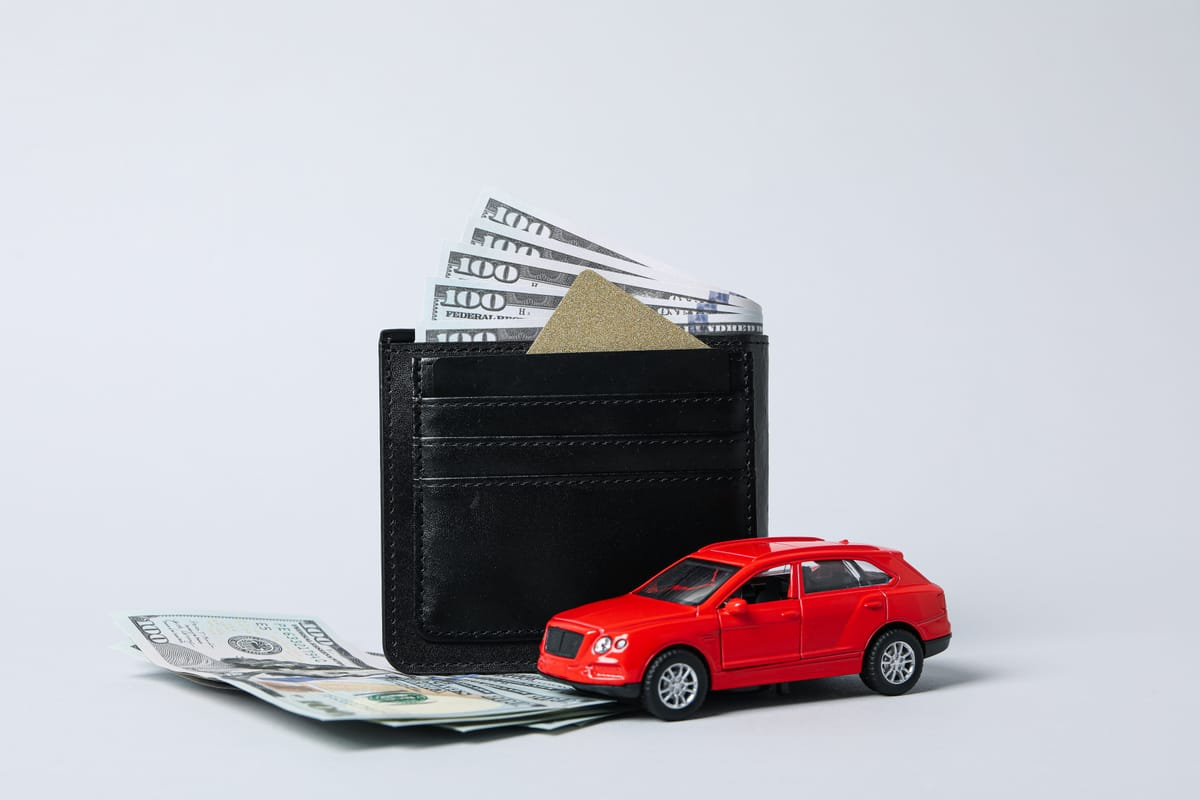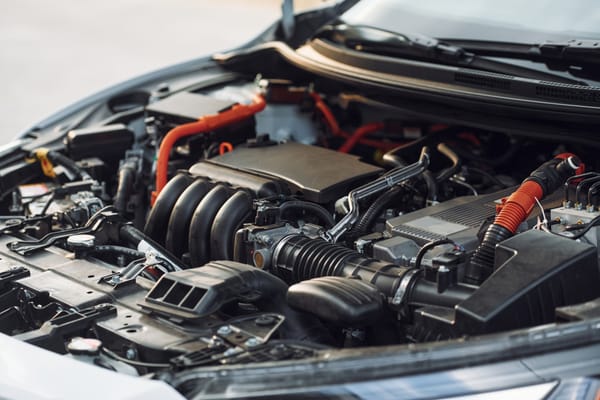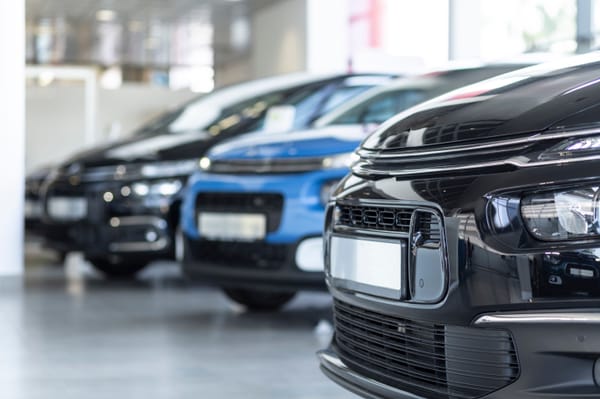Why Some Cars Are Cheaper in Kenya Than Others (And What That Really Means for You)

Ever stumbled on two nearly identical cars - same year, similar mileage, maybe even the same color - but with wildly different price tags? You’re not alone. Car prices in Kenya can feel like a mystery wrapped in a riddle stuffed in a glove box.
But here’s the kicker: those price gaps aren’t random. They’re the result of a complex mix of specs, taxes, economics, and a few little-known hacks that the average buyer might miss.
If you're in the market for a car—whether you're a first-timer, seasoned buyer, or just browsing Peach Cars while daydreaming at work—understanding what drives these price differences can save you a ton of money, stress, and regret.
Let’s pop the hood on Kenya’s car pricing system.
1. The Car Itself: Not All Specs Are Created Equal
Before we even talk taxes or currency rates, let’s start with what’s staring you in the face: the actual car. The make and the model. Not all are priced the same. For instance, a used 2015 Mercedes-Benz CLA won’t cost the same as a Mazda Axela manufactured in the same year with lower mileage.
Key Factors That Push the Price Needle:
- Engine Capacity: A car with a 1500cc engine is taxed very differently than one with a 2500cc beast under the hood. Expect a 20–25% excise duty swing.
- Body Type: SUVs and luxury sedans usually command higher prices than hatchbacks or compact cars. Think: material, safety features, and general Kenyan flex value.
- Drive Configuration: 4WDs cost more than 2WDs—not just upfront, but in fuel and maintenance. But hey, you’ll thank yourself when you’re not stuck in muddy parking lots in Rongai.
- Seating Capacity: More seats = more metal = more money.
Peach Insider Tip: Want a tough, reliable workhorse without breaking the bank? Go for a 2WD double-cab pickup over a 4WD unless you really need off-road capabilities. Most Nairobi drivers don’t.
2. The Economic Engine: How Kenya’s Economy Shapes Prices
Here’s the truth: a car doesn’t just cost what it costs. It costs what the market can handle. And the Kenyan market? Price-sensitive to the bone.
What Drives Price Up (or Down):
- Disposable Income: If the economy’s tight, people spend less, dealers lower prices, and demand dips.
- Fuel Prices: A car that drinks like a fish may look good parked, but it’ll bleed you dry on Thika Road. Fuel-efficient cars hold better long-term value.
- Resale Value & Maintenance: That cheap import might be a money pit in disguise. Always factor in future repair costs and ease of getting spare parts.
- Financing Costs: Loans in Kenya can be pricey. If you’re taking a facility, look closely at the interest rate. A 2M car at 18% APR suddenly costs a lot more.
Little-Known Peach Hack: Ask for cash discounts. Many knock off 3 - 5% if you're not financing.
3. Import Duties: The Silent Wallet Killer
If your dream car is coming in from Japan, the UK, or the UAE - brace yourself.
Here's How the Tax Stack Works:
- Import Duty – currently sits at 25% of the Customs Value (CIF) of the vehicle. The CIF value is calculated by adding the car's invoice value, that is, cost, insurance, and freight (CIF) charges.
- Excise Duty (20–25%) – Depends on engine size. Cars with an engine capacity of 1500 cc and below are subject to a 20% excise duty, while those above 1500 cc are subject to a 25% excise duty. This duty is calculated on the sum of the Customs Value and the Import Duty.
- VAT (16%) – Yes, you’re taxed on the tax - is that a collective wueeeh! we hear?
- Railway Development Levy (2%): A 2% of the CIF value is applied.
- Import Declaration Fee (3.5%): This amount is set at 3.5% of the CIF value.
- Port Charges, Verification Fees, Marine Insurance (~0.4%)
Peach Inspired Reality Check: Your Sh1.2M Japanese import might balloon to Sh1.7M after all duties and fees. And that’s before local registration or showroom mark-up.
The Kenya Revenue Authority (KRA) has a specific way of calculating these duties. They use a benchmark value for the car, called the Current Retail Selling Price (CRSP). The car's engine size affects the excise duty. Read here the true cost of importing a vehicle vs buying locally.
4. Vehicle Age: Newer Isn’t Always Better… for Your Wallet that is.
The older the car, the cheaper it is—both in market value and in tax calculations.Vehicle age dramatically affects pricing through two mechanisms:
- First, cars naturally depreciate with age, with newer models commanding higher prices in both local and international markets.
- Second, the KRA applies different depreciation rates when calculating import duties based on a vehicle's age. A one-year-old car attracts higher taxes than a seven-year-old one, where depreciation can reach up to 65%.
This is why you'll see substantial price differences between a 2023 and a 2017 model of the same car.
Peach Rule of Thumb: Sweet spot for imports is often 5–7 years old—cheap enough on tax, new enough to be reliable.
5. Exchange Rates: The Invisible Price Lever
The Kenyan Shilling doesn’t sleep. And its dance with the US Dollar or Japanese Yen can turn a great deal sour overnight. Currency swings can cost you Sh100K+ on a single car.
- Weak Shilling = Higher Car Prices (you need more KES to buy USD or JPY). As a result, cars become more expensive, and dealers might then have to increase their prices to cover these higher costs.
- On the flip side, Stronger Shilling = Lower Import Costs (but don’t hold your breath)
Peach Pro Tip: If you’re importing, lock in a rate or pre-pay while the shilling is strong.
Even changes in how the KRA values cars can influence prices. It's a constantly moving target, with currency values and government policies working together to shape the market.
6. Locally Assembled vs Foreign Used: The Showdown
Locally Assembled Cars:
- Lower import taxes (no 25% import duty)
- Easier parts and service access
- Proudly Kenyan (okay, okay… partially)
Models to watch: Isuzu D-Max, Mobius, select Toyota Hilux models
Foreign-Used Cars:
- Often better features for the price
- Carefully maintained (especially from Japan)
- Widely available and with good resale value
Peach Buyer Hack: Before importing, compare “fully landed” price (with all taxes) vs. buying the same model locally. Sometimes, the import loses the price battle once all costs are added, especially for lower-priced vehicles (under KES 2 million).
7. Smart Buyer Moves: How to Outwit the Market
You're not just buying a car. You're investing in mobility, freedom, and your sanity during traffic jams. So make it count.
Smart Habits of Wise Buyers:
- Research thoroughly: Compare listings across multiple platforms
- Calculate all costs: Always factor total cost of ownership—not just purchase price
- Get professional inspections: Ask for a pre-purchase inspection (especially for used imports) - Peach offers this as a comprehensive service
- Consider fuel efficiency: Research fuel economy and spare parts availability
- Factor in maintenance costs: Plan for insurance, service, and unplanned repairs
Peach Golden Rule: A Sh150K difference today can save you Sh300K in repair costs later. Choose wisely.
Final Gear: What It All Means for You
The Kenyan car market is layered. If you're just looking at the price tag, you're only seeing half the picture.
When you understand why some cars are cheaper than others, you become a sharper, more confident buyer. And when you're ready to make your move, you won't just get a good deal—you'll get a smart deal.
At Peach Cars, we cut through the jargon and give you full transparency—from tax estimates to long-term value insights. Whether you're buying your first car or your fifth, we’re here to make sure you drive off with peace of mind, not buyer’s remorse.
🚗 Thinking of buying? Chat with our team today or visit our showroom—we’ll help you find the perfect match at the right price.
Share this with your car group or that friend who's always asking you to “check for them a clean Toyota.” Trust us - they’ll thank you later




